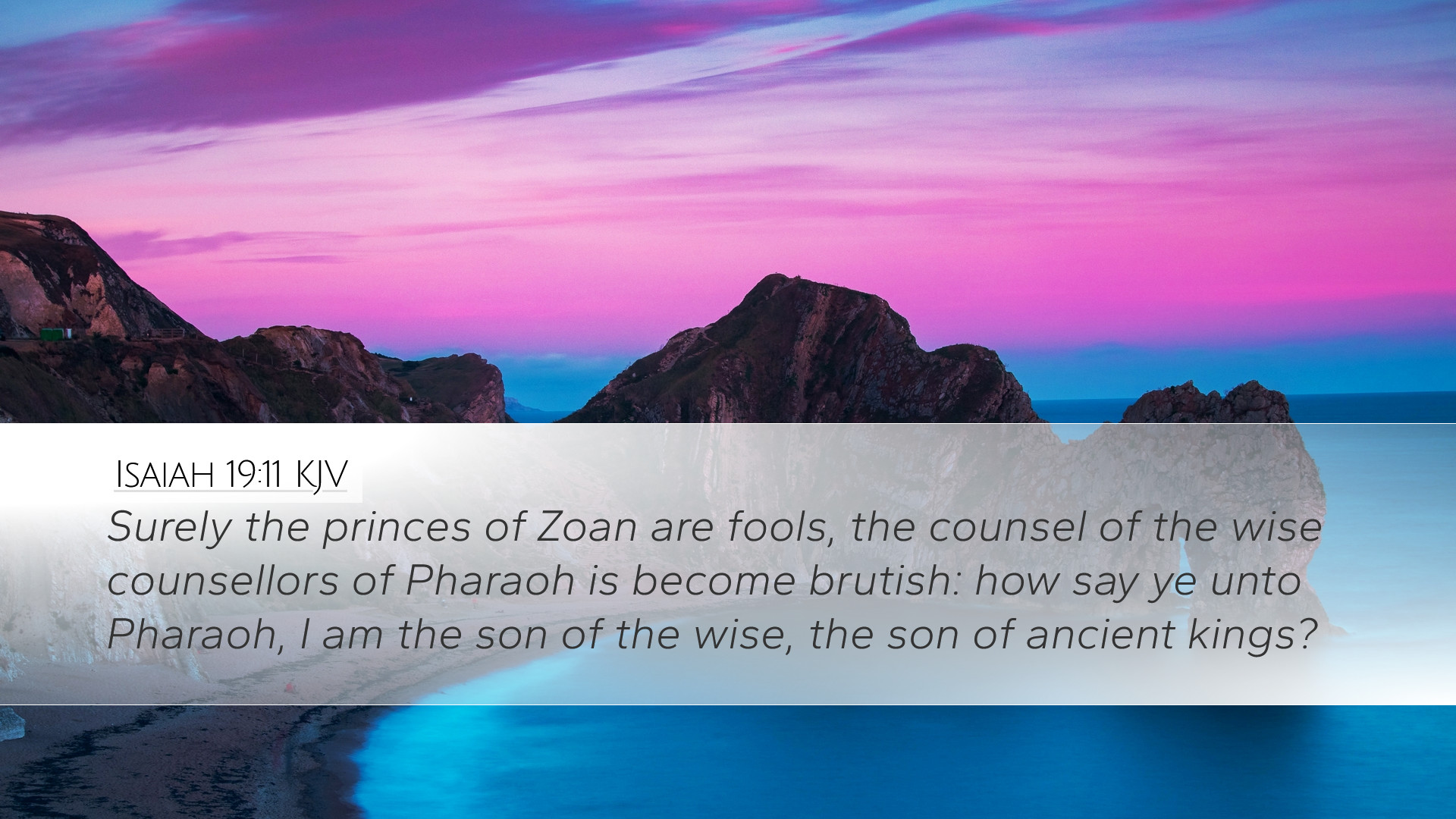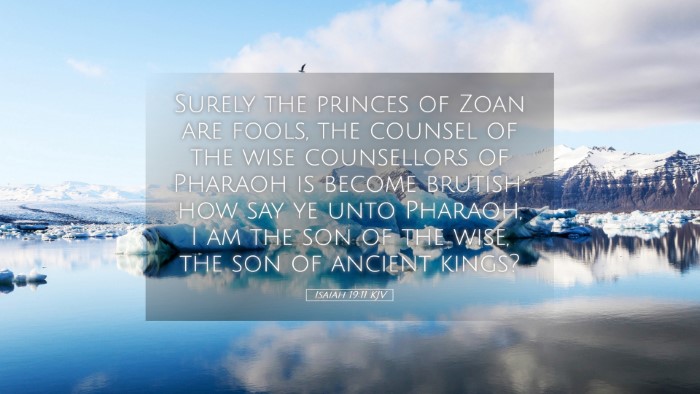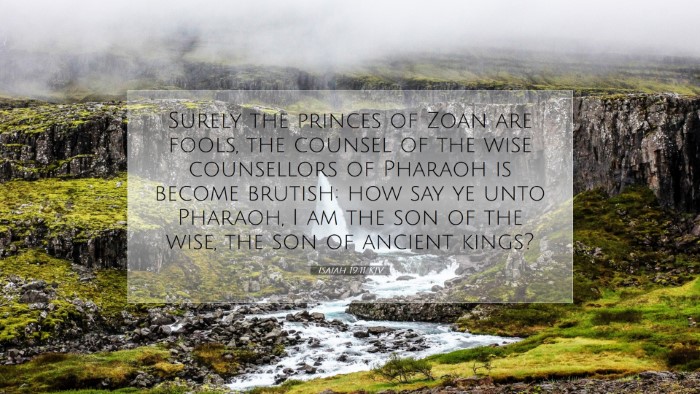Commentary on Isaiah 19:11
Isaiah 19:11 states:
"The leaders of Zoan are utterly foolish; the wise counselors of Pharaoh give stupid counsel." (ESV)
Introduction
This verse occurs within a prophetic context where Isaiah addresses Egypt, highlighting the foolishness and ineffectiveness of their leaders and counsels. Understanding this passage requires examining the cultural and historical background of Egypt, the significance of wisdom in Biblical terms, and its implications on leadership and divine judgment.
Contextual Analysis
The setting of this verse is during a time when Egypt was experiencing great turmoil and confusion. Historically, Egypt's role as a significant power was under threat, and their reliance on wise counsel was called into question.
Historical Background
Egypt was known for its wisdom and knowledge, particularly during the time of Moses and the Exodus. However, by the time of Isaiah, the leaders began to stray from divinely inspired wisdom.
- Leaders of Zoan: Zoan was a city in Egypt known for its scholarly pursuits. Its leaders, once revered for their knowledge, were now depicted as “utterly foolish.”
- Pharaoh's Counselors: The counselors who advised Pharaoh were considered wise, yet Isaiah's prophecy reveals their counsel as “stupid,” reflecting a profound failure of leadership.
Interpretive Insights from Commentators
Matthew Henry's Commentary
Henry emphasizes the absurdity of relying on human wisdom when it is disconnected from God. He points out that true wisdom comes from possessing a reverent relationship with the Lord.
- Spiritual Blindness: Henry observes that the leaders' foolishness stems from spiritual blindness and disconnection from divine guidance.
- Divine Judgment: He highlights that such folly leads to inevitable judgment upon Egypt, illustrating the principle that nations ultimately reap the consequences of their leaders’ folly.
Albert Barnes' Commentary
Barnes adds a historical lens to the interpretation, relating this verse to the broader political context of Isaiah’s time. He notes the prevailing tensions in Egypt as they faced foreign powers.
- Cultural Factors: Barnes points out that the cultural reliance on astrology and other forms of earthly wisdom failed to provide guidance in crucial times.
- Disruption of Counsel: He illustrates how the disruption of wise counsel in high places can lead to national collapse, urging leaders to seek divine wisdom over human schemes.
Adam Clarke's Commentary
Clarke’s insights center around the notion of wisdom and its divine origin. He critiques the Egyptian approach, which prioritized secular wisdom overpiety.
- Value of Divine Wisdom: Clarke stresses that true wisdom must be rooted in a relationship with God, grounding human intellect in spiritual truth.
- Implications for Guidance: He argues that this failure in counsel serves as a warning to nations, emphasizing the importance of seeking God’s will in leadership decisions.
Theological Reflections
This verse invites theological reflection on the nature of wisdom and the role of leadership. It underscores a profound truth: leadership devoid of divine grounding leads to chaos and confusion.
- Human vs. Divine Wisdom: The contrast is stark: human wisdom can be clever but is often short-sighted and leads to foolishness without God.
- Call for Repentance: The passage serves as a clarion call for both salvation and repentance, indicating the need for turning to God to receive true wisdom and clarity in decision-making.
Practical Applications
For pastors, theologians, and students, the implications of this verse are profound. It calls for a deeper engagement with Scripture to inform leadership practices:
- Seek Divine Wisdom: In every decision-making process, leaders must place a priority on seeking God’s will through prayer and the study of His word.
- Foster a Culture of Dependence on God: Encourage church communities to develop a culture of reliance on divine wisdom rather than purely human reasoning.
- Warning Against Complacency: This passage serves as a warning against complacency in leadership, urging ongoing engagement with spiritual truths.
Conclusion
Isaiah 19:11 provides a sobering reminder of the consequences when leaders abandon divine wisdom for earthly counsel. As we reflect upon this verse, may we strive for genuine wisdom that comes from above, promoting health in our communities and nations through guidance rooted in the knowledge of God.


